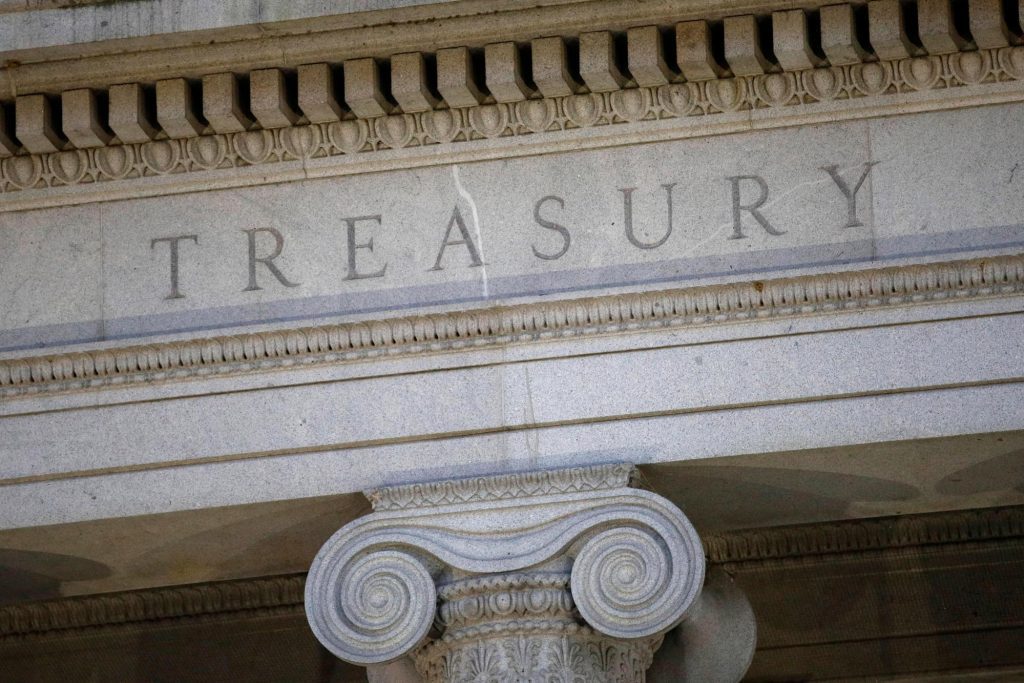By FATIMA HUSSEIN (Associated Press)
WASHINGTON (AP) — The U.S. and U.K. implemented additional sanctions on Iran on Thursday due to concerns that Tehran's unprecedented assault on Israel may lead to a broader war in the Middle East. Treasury’s Office of Foreign Assets Control targeted 16 individuals and two organizations in Iran involved in producing engines for the drones used in the April 13 attack on Israel . OFAC also penalized five companies in the steel production industry and three subsidiaries of Iranian carmaker Bahman Group, which is accused of materially supporting Iran’s military and other banned groups. A representative from Bahman was not immediately available for comment.
Also, the U.K. is aiming at several Iranian military branches and individuals connected to Iran’s drone and ballistic missile industries. President Joe Biden stated that he had directed the U.S. Treasury to keep imposing sanctions that weaken Iran’s military industries. He also warned all those who assist Iran’s attacks that the U.S. will not hesitate to hold them accountable.U.K. Prime Minister Rishi Sunak mentioned that the sanctions would further limit Iran’s ability to disrupt the region.
In addition to Treasury’s penalties, the U.S. Commerce Department is placing new restrictions to limit Iran’s access to basic commercial grade microelectronics, which apply to items made outside the U.S. using U.S. technology.
Previously, U.S. officials had indicated they were preparing new sanctions in response to Iran’s activities in the region and to prevent future attacks. Lawmakers on Capitol Hill have also been swiftly advancing legislation to financially punish Iran and its leaders.
Iran’s attack on Israel early Sunday was in retaliation for what it claims was an Israeli attack on Iran’s consulate in Syria earlier this month. Israel’s military chief stated Monday that his country will respond to the Iranian attack, while world leaders advise against retaliation to prevent an escalation of violence.
European Union leaders also pledged on Wednesday to increase sanctions on Iran, targeting its drone and missile deliveries to allies in Gaza, Yemen and Lebanon.
EU foreign policy chief Josep Borrell mentioned that the existing EU sanctions regime would be reinforced and expanded to punish Tehran and help prevent future attacks on Israel, while urging Israel to show restraint. “I don’t want to exaggerate, but we are on the edge of a war, a regional war in the Middle East, which will be sending shockwaves to the rest of the world, and in particular to Europe,” he warned. “So stop it.” The U.S. has already imposed sanctions on numerous entities and individuals in Iran — from the central bank and government officials to drone producers and currency exchangers — accused of materially supporting Iran’s Revolutionary Guard and foreign militant groups like Hamas, Hezbollah and the Houthis.
And U.S. efforts to decrease Iran’s earnings from oil and petroleum products go back many years.
The question still remains about how effective sanctions have been and will be in stopping Iran from increasing its production of military equipment. American defense officials claim Iran is providing drones to Russia as it carries out its invasion of Ukraine, which has continued for a third year. Earlier this week, Treasury Secretary Janet Yellen mentioned in a press conference that the U.S. has been working to reduce Iran’s ability to sell oil. ”There might be other actions we could take,” she said.
The U.S. and U.K. have enforced a new series of sanctions on Iran due to concerns that Tehran’s unparalleled attack on Israel could lead to a broader war in the Middle East. In the measures on Thursday, Treasury’s Office of Foreign Assets Control aimed at 16 people and two entities in Iran that manufacture engines for the drones used in the April 13 attack on Israel. Additionally, the U.K. is aiming at several Iranian military organizations, individuals and entities involved in Iran’s drone and ballistic missile industries.
“I don’t want to exaggerate, but we are on the edge of a war, a regional war in the Middle East, which will be sending shockwaves to the rest of the world, and in particular to Europe,” he warned. “So stop it.”
The U.S. has already sanctioned hundreds of entities and people in Iran — from the central bank and government officials to drone producers and money exchangers — accused of materially supporting Iran’s Revolutionary Guard and foreign militant groups such as Hamas, Hezbollah and the Houthis.
And U.S. efforts to limit Iran’s income from oil and petroleum products span back decades.
The question remains how effective sanctions will be, and have been, in preventing Iran from ramping up its production of military equipment. American defense officials accuse Iran of supplying drones to Russia as it pursues its invasion of Ukraine, which has reached a third year.
Earlier this week, Treasury Secretary Janet Yellen said during a press conference that the U.S. has “been working to diminish Iran’s ability to export oil.”
”There may be more that we could do,” she said.









